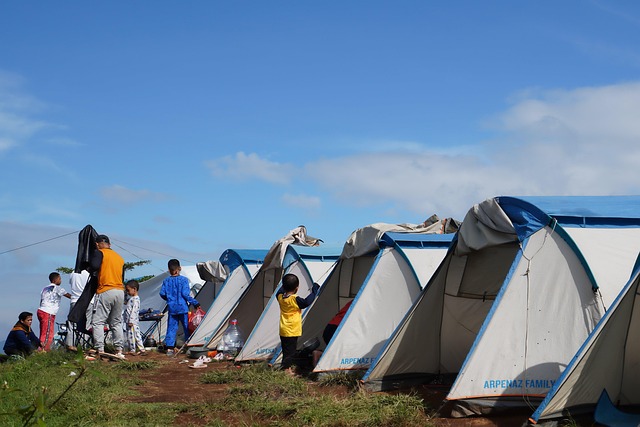Rocky Creek Youth Camp, established in 1950, is a historic outdoor adventure hub renowned for connecting youth with nature. Despite facing allegations of historical abuse, the camp has implemented stringent safety measures and prioritizes adherence to child protection laws to ensure attendee well-being and maintain public trust.
“The serene landscape of Rocky Creek Youth Camp, once a haven for young minds, has been overshadowed by disturbing allegations of abuse. This article delves into the complex history of the camp, exploring the background that led to these serious claims. We examine the specific allegations, the camp’s subsequent responses, and the legal implications that have emerged. Understanding the events at Rocky Creek Youth Camp is crucial in navigating the aftermath and ensuring such incidents are addressed effectively.”
- Background and History of Rocky Creek Youth Camp
- Allegations of Abuse: What Has Been Claimed?
- Responses and Aftermath: Camp's Stand and Legal Implications
Background and History of Rocky Creek Youth Camp

Rocky Creek Youth Camp, nestled in a serene natural setting, has been a beloved destination for youth activities and camps since its establishment in 1950. This historic camp has spent decades fostering connections between young people and nature, offering a range of outdoor adventures and educational programs. Over time, it has evolved to cater to diverse interests, from hiking and canoeing to environmental stewardship initiatives.
The camp’s rich history is marked by its commitment to providing a safe and nurturing environment for children and teenagers. Located along the banks of Rocky Creek, the site offers not only breathtaking landscapes but also a sense of community among campers and staff. With a long-standing reputation as a vibrant and inclusive space, Rocky Creek Youth Camp continues to thrive, attracting participants from various backgrounds who seek memorable experiences in a beautiful natural setting.
Allegations of Abuse: What Has Been Claimed?

The Rocky Creek Youth Camp has faced significant scrutiny and a wave of abuse claims, bringing to light disturbing allegations that have shocked the community. Numerous individuals have come forward with stories of physical, emotional, and sexual abuse allegedly inflicted upon them during their time at the camp. These claims span decades, indicating a deep-rooted culture of mistreatment that may have left lasting impacts on countless young people.
The allegations include excessive corporal punishment, forced labor, and inappropriate relationships between staff members and campers. Some former attendees describe a hostile environment where they felt helpless and unable to report these incidents due to fear or a perceived power imbalance. The gravity of these claims demands a thorough investigation, holding the camp’s administration accountable, and ensuring such atrocities never recur in the future.
Responses and Aftermath: Camp's Stand and Legal Implications

When allegations of abuse emerged, Rocky Creek Youth Camp took a firm stand against such conduct, implementing stringent policies to ensure the safety and well-being of its young attendees. The camp’s swift response included enhancing staff training, installing advanced surveillance systems, and establishing a dedicated reporting mechanism for any incidents or concerns. This proactive approach aimed to deter potential perpetrators and provide a safer environment.
The legal implications of these abuse claims are significant. Rocky Creek Youth Camp, as an institution, is subject to various state laws and regulations regarding child protection and safety. Failure to adhere to these standards can result in severe consequences, including legal action against the camp and its administrators. The camp’s commitment to transparency and accountability during this period is crucial to maintaining public trust and ensuring a thorough investigation into the allegations.
The allegations of abuse at Rocky Creek Youth Camp have brought significant attention to the need for stringent oversight and transparency in youth facilities. As discussions continue, it is imperative that both the camp administration and legal entities address these claims comprehensively. Moving forward, implementing robust safety measures and fostering an environment of accountability will be crucial to ensure the well-being of all attendees and mitigate any potential risks. By learning from this situation, Rocky Creek Youth Camp can emerge as a more secure and trusted space for young people.
